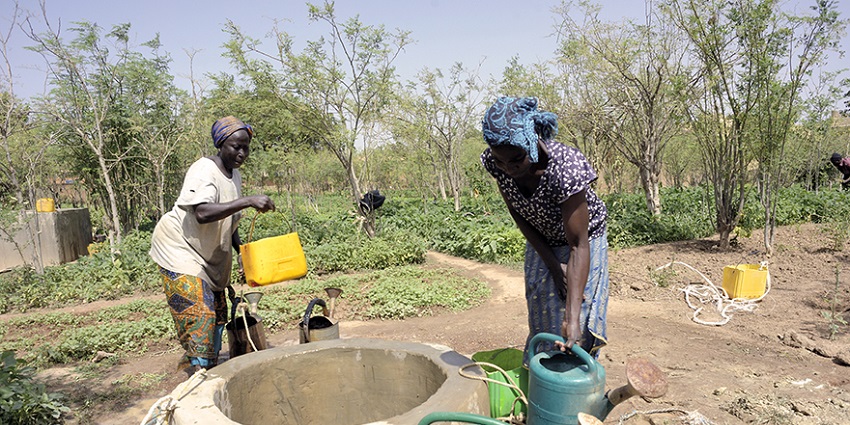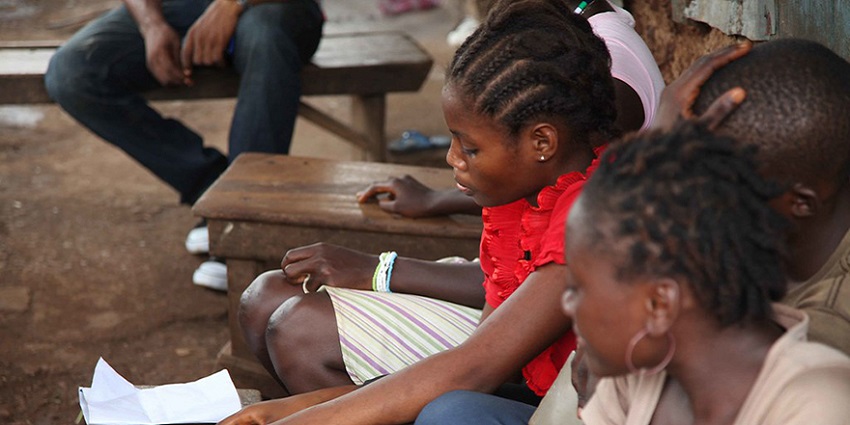5,1 M€
Wallet
2 903
Number of beneficiaries
37 %
Women beneficiaries
100 %
Urban beneficiaries
Niger
Financial services
Funding granted
Loan of €762,000*
(local currency equivalent)
Partner of the Foundation
since 2019
*Outstanding at grant value
Context :
Niger's economy still depends largely on subsistence agriculture and uranium reserves. Although growth and prospects are encouraging, the economy remains vulnerable to climate shocks and commodity price fluctuations.
The company:
A microfinance institution created in 2012, ACEP Niger manages loans and savings products for small and micro-enterprises in urban and peri-urban areas that have been rejected by the traditional banking system.
Impact :
ACEP is committed to contributing to the economic development of Niger, promoting the growth of small entrepreneurs excluded from access to bank credit and ensuring sufficient profitability to enable the institution's sustainability.
A TA program to strengthen microfinance in West Africa

Actors committed to microfinance
With over 10 years of experience in the microfinance sector, the Grameen Crédit Agricole Foundation finances and supports microfinance institutions with technical assistance. It represents over €200 million in financing, a presence in nearly 40 countries, and more than 85 institutions supported since its inception. With 37% of investments in Sub-Saharan Africa, the continent is at the heart of the Foundation's actions and its mission to contribute to the fight against poverty.
Alongside the European Investment Bank (EIB) and the Luxembourg government, the Foundation will strengthen its support for microfinance institutions in West Africa as part of a new technical assistance program. Both of the Foundation's partners have extensive experience in developing microfinance: the EIB has already committed more than €1.3 billion to the sector since the first microfinance operations in 1992, and Luxembourg accounts for 611,000 million of global microfinance assets under management.
Strengthening the Foundation's impact in West Africa
After granting the Grameen Crédit Agricole Foundation a loan equivalent to €12 million in CFA francs in 2019 to support microfinance in West Africa, the EIB has awarded, on behalf of the Government of Luxembourg, a grant of €332,000 to provide technical support to five microfinance institutions supported by the Foundation.
This two-year program will enable the Foundation to support Caurie (Senegal), Kafo Jiginew (Mali), Graine (Burkina Faso), ACEP Burkina Faso, and ACEP Niger to facilitate their digital transformation, improve risk management, and strengthen social performance management. Through this partnership with the EIB and the Government of Luxembourg, the Foundation is expanding its presence in West Africa and strengthening its value proposition to its partners in the region.
Grameen Crédit Agricole Foundation invests in three new countries

For the first time, the Grameen Crédit Agricole Foundation is investing in Rwanda, Niger, and Sierra Leone. With these new investments, the Foundation now operates in 16 sub-Saharan African countries.
During the first half of 2019, the Grameen Crédit Agricole Foundation made new investments, including three in new countries. It financed the LAPO microfinance institution in Sierra Leone for the first time, with an equivalent amount of €385,000. LAPO's mission is to offer financial services that meet the needs of economically active people in a profitable and innovative manner. It is an MFI committed to developing the microfinance sector in Sierra Leone based on best practices in microfinance and strengthening the sector with a view to developing a credit culture. To date, the institution has nearly 22,000 clients, including 97.3% women. This clientele is located in rural areas.
The Foundation also secured an initial financing amounting to €500,000 from the Nigerien microfinance institution ACEP Niger. ACEP Niger is an MFI specializing in financing very small businesses in urban areas. It manages loans and savings products for small and micro-enterprises in urban and peri-urban areas that have been rejected by the traditional banking system. In keeping with its corporate social responsibility priority, ACEP Niger has adopted the SMART Campaign's client protection principles. It thus ensures that its borrowers are protected from over-indebtedness. To date, the institution has nearly 4,000 clients, including approximately 251,000 women. All of ACEP Niger's clientele is located in urban areas.
Finally, the Foundation also granted an initial loan equivalent to €493,000 to VisionFund Rwanda, a microfinance institution and subsidiary of VisionFund International whose mission is to provide financial and non-financial services to disadvantaged rural communities. VisionFund Rwanda primarily serves vulnerable women with children and young people in rural areas and offers them opportunities for economic empowerment. The products offered and the strategy are focused on strengthening and providing financial services to village savings and loan associations and groups. To date, the MFI has nearly 12,000 clients, including 62% women and 85% clients in rural areas.
